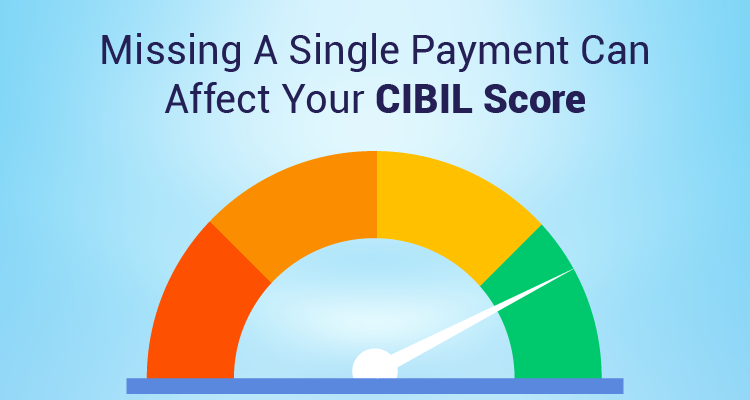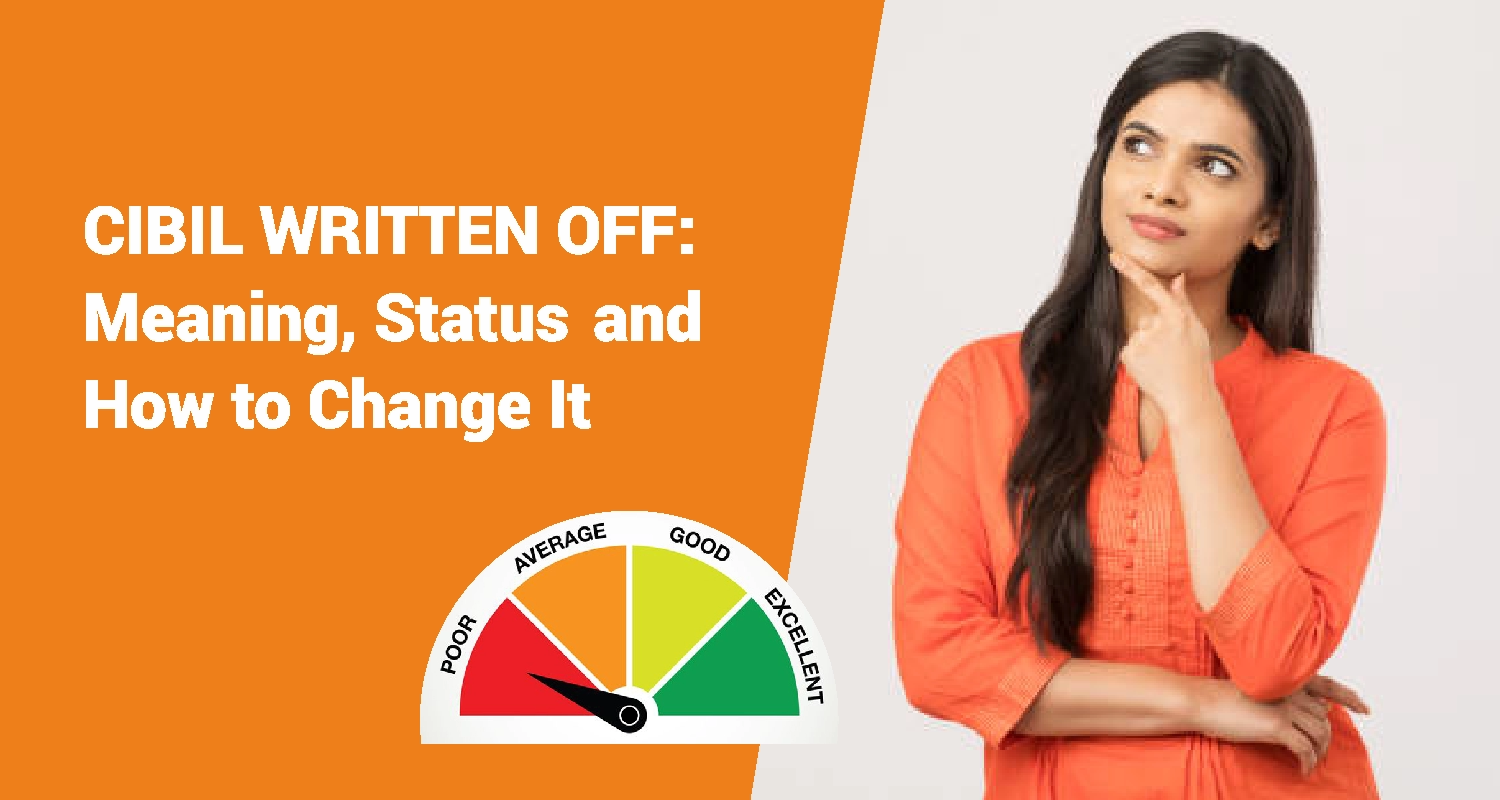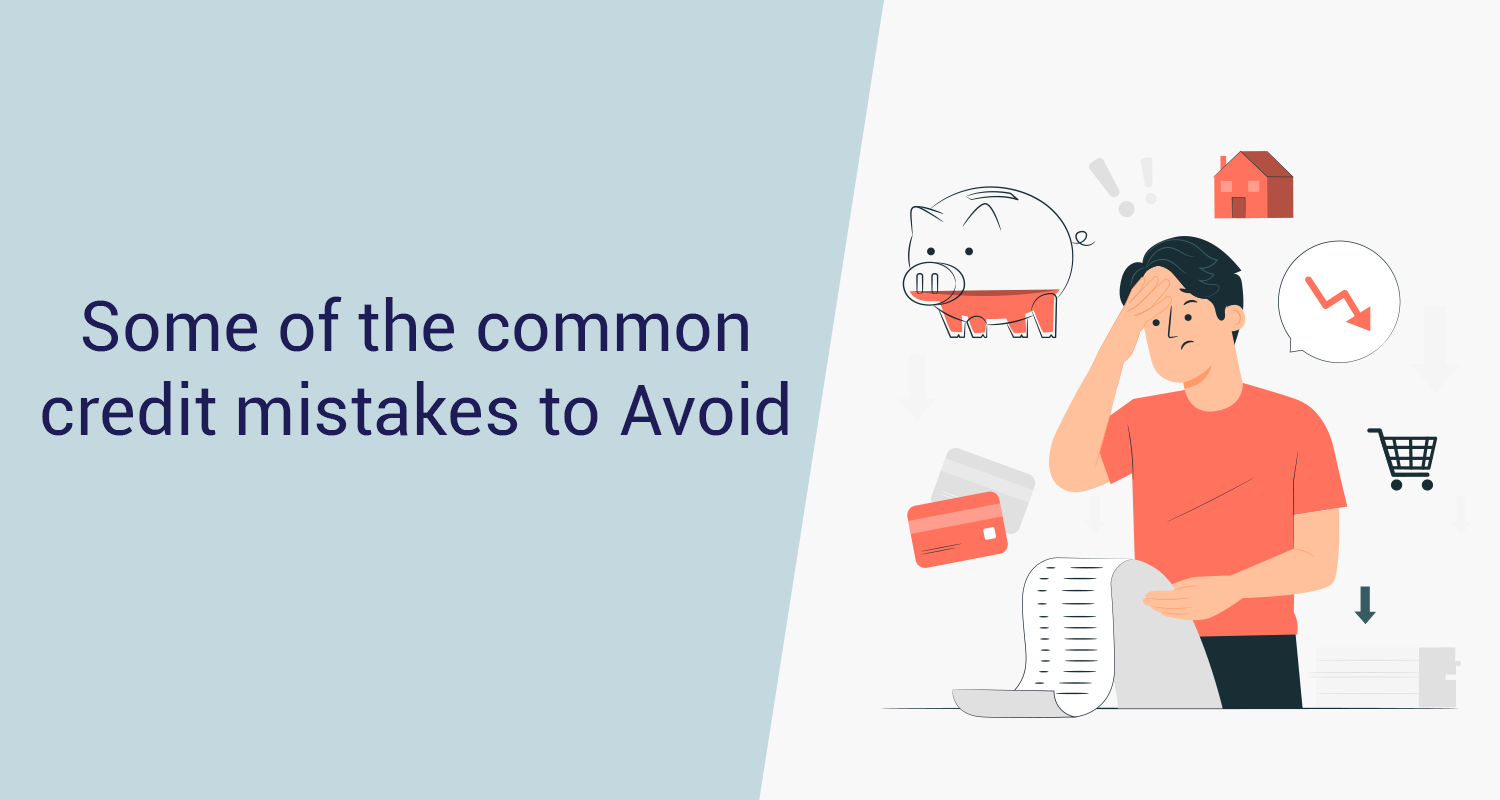Missing A Single Payment Can Affect Your CIBIL Score

CIBIL score or credit score is a crucial indicator that banks and non-banking finance companies uses to assess a loan application. CIBIL Score is basically a report card on your financial health and it works as the first impression for the lender. The higher CIBIL Score you have the better chance of getting a loan at reasonable rate of interest. However, missing even a single payment can affect your CIBIL score.
What Is CIBIL Score?
CIBIL Score is a 3-digit numeric summary of your credit history and ranges from 300 to 900. The closer your score is to 900, the higher your chances of loan application getting approved. The score is based on 36 months of your credit history and a score of above 700 is generally considered good and credit worthy.
The CIBIL score is derived using an individual's credit payment history across loan types and institutions over a period of time. It contains only the credit or loan history and does not take into account details of your savings, investments or fixed deposits.
Missing Single Payment
Some of us may have missed due date on a credit card bill payment because it skipped our mind. Even though you have not done it purposely, it will affect your CIBIL Score because the score is based on credit payment history. Even missing one single payment can affect your credit profile negatively. Overdue payments will remain in your credit report for many years, though its impact will reduce over time when you repay the other loans on time.
A good way to avoid this is to set up payment reminders. An even better option is to set up an auto-debit facility with the bank, but ensure that there is enough money in your account each month on the due date.
Missing a payment will affect your credit score, but it is not the end of the road for you. One can always improve the CIBIL score over a period by repaying dues on time and being prudent with credit. CIBIL Score is not just about payment history. It also takes into other factors like how much of your credit limit has been used up on your credit card or whether you have made multiple loan enquiries with different lenders. A very high credit utilisation and multiple loan applications are viewed negatively and affect your credit score.
Maintaining Good CIBIL Score
One can improve CIBIL Score by maintaining a good credit history by making timely payment on dues. Late payments are viewed negatively and can adversely affect your score. Lenders view delayed or missed payments as a red flag and would want to avoid giving loans to a borrower with a poor repayment track record.
Borrowers must use credit limit on credit card or line of credit judiciously as a higher utilization can negatively impact your score. Always try and pay your full credit card bill rather than paying minimum dues. By paying only the minimum dues, you are sharply increasing your interest liability.
One must avoid applying for multiple loans. Too many credit enquiries will reduce your score.
Also, make sure that you don't stand guarantee for those who can default on timely payments. Your credit score will be affected if there is default on a loan on which you have stood guarantee as you are equally liable for the default.
The higher the CIBIL Score the better the chance of getting loan at favourable rates of interest.
Borrowers with lower CIBIL Score can still get personal loans, but rates of interest may be higher, and applications may be subject to more scrutiny.
A high CIBIL score indicates that the borrower has a good credit history and there is very low risk of default on the loan.
Can the borrower therefore improve the CIBIL Score and credit history? As said earlier, the credit score can be improved over time by making on-time payment of principal and interest on your dues. If a borrower makes timely payment, the CIBIL Score will improve over time, enabling them to get better terms on personal loans.
Conclusion
A personal loan is free of any collateral for the borrower and so it entails a higher risk for the lender. To manage the risk, lenders rely on the creditworthiness of the borrower to accept or reject an application. They do so by assessing the borrower’s CIBIL score.
A score of more than 700 usually makes it easier to avail a personal loan at a low interest rate. A lower score does make it difficult but does not necessarily lead to rejection of a loan.
Top NBFCs like IIFL Finance offer instant personal loan approvals for up to Rs 5 lakh with a hassle-free process. IIFL also offers competitive interest rates and flexible repayment terms that make it easier for the borrowers to clear their debt burden with ease.
Disclaimer: The information contained in this post is for general information purposes only. IIFL Finance Limited (including its associates and affiliates) ("the Company") assumes no liability or responsibility for any errors or omissions in the contents of this post and under no circumstances shall the Company be liable for any damage, loss, injury or disappointment etc. suffered by any reader. All information in this post is provided "as is", with no guarantee of completeness, accuracy, timeliness or of the results etc. obtained from the use of this information, and without warranty of any kind, express or implied, including, but not limited to warranties of performance, merchantability and fitness for a particular purpose. Given the changing nature of laws, rules and regulations, there may be delays, omissions or inaccuracies in the information contained in this post. The information on this post is provided with the understanding that the Company is not herein engaged in rendering legal, accounting, tax, or other professional advice and services. As such, it should not be used as a substitute for consultation with professional accounting, tax, legal or other competent advisers. This post may contain views and opinions which are those of the authors and do not necessarily reflect the official policy or position of any other agency or organization. This post may also contain links to external websites that are not provided or maintained by or in any way affiliated with the Company and the Company does not guarantee the accuracy, relevance, timeliness, or completeness of any information on these external websites. Any/ all (Gold/ Personal/ Business) loan product specifications and information that maybe stated in this post are subject to change from time to time, readers are advised to reach out to the Company for current specifications of the said (Gold/ Personal/ Business) loan.



